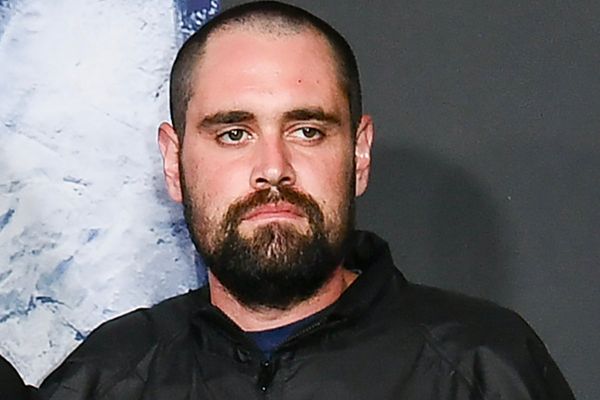WA Premier Mark McGowan has raised questions about what a new 500-bed COVID quarantine facility being constructed on Perth's eastern outskirts can be used for as demand disappears.
Mr McGowan told a parliamentary estimates hearing the facility, which cost the Commonwealth "in the vicinity of $200 million" and will have its operational costs paid by the state, is expected to be completed in coming months.
Any decision on the eventual use of the facility, dubbed a 'Centre for National Resilience', will come down to the federal government.
The Department of Finance website suggests beyond quarantine accommodation during COVID-19, the facility could be used in future public health emergencies, humanitarian efforts, or as crisis accommodation for bushfire-affected communities or 'other vulnerable Australians'.
Mr McGowan said the facility "might be of great benefit".
"Every Christmas we have disasters, we have fires and cyclones, perhaps there's a use there at some points during the year," he said.
"Maybe there's a use for the Commonwealth, in terms of a facility for the people they deport each year."
Plea for overseas nurses
Meanwhile, COVID is continuing to wreak havoc on the state's health system, with dire shortages of hospital staff.
Health Minister Amber-Jade Sanderson told the estimates hearing she was keen to strike an agreement with the Albanese government for overseas nurses to be given fast-tracked citizenship if they are willing to move to the state.
It came as WA recorded six more deaths of people infected with COVID-19, along with 12,114 new cases.
But the Health Minister did not answer questions on what levels of shortages existed across the sector, in particular how many full-time equivalent staff were needed.
The closed border made it particularly difficult to recruit staff internationally and to help make up the shortfall, agencies had been given permission to recruit 125 per cent of their staff allocation.
Ms Sanderson said in the two years until March 2022, the number of full-time equivalent staff had increased by 15.6 per cent.
WA must compete with NHS: Minister
WA Health director-general David Russell-Weisz told parliament the specific areas of shortage were midwives and theatre nurses, especially in rural and regional areas.
When asked by Shadow Health Minister Libby Mettam to reveal the specific vacancy rate for theatre nurses, the Minister said she would have to take that question on notice, meaning an answer would not be given straight away.
Ms Sanderson said it currently took 18 months for a nurse to immigrate from the UK, but the National Health Service (NHS) in England was more competitive.
"The reality is the NHS is providing a fast-track process with a guarantee of citizenship at the end of it for you and your family, and we need to be in a position to compete with that," she said.
"And that will be a priority discussion with the new government."
Ms Mettam leapt on Ms Sanderson's inability to provide a number for how many staff the health system needed.
"The only way you can deal with an issue is if you can identify the issue and give some indication of the size of that issue," she said.
"Either the McGowan government isn't aware of the size of the problem, or they are just unwilling to provide that level of detail."
Digital driver's licences mooted
As COVID uses for the ServiceWA app fall away, the Premier told estimates $4.7m had been allocated in the budget to expand the app's capabilities, with a digital driver's licence on the horizon for West Australians.
He said FuelWatch would be added to ServiceWA "in the next day or two".
"We're looking at putting in there a digital Seniors Card, digital SmartRider, emergency bushfire alerts, they're all being explored," he said.
"In the longer term, we can look at a digital driver's licence, vehicle registration, getting your bills and paying them, paying fines and infringements.
"Migrating those services on to one app is apparently technologically not easy, but that's the work that's being done."
Questions over ambulance service
Ms Sanderson was also quizzed about the government's relationship with St John Ambulance, which has been extremely fraught recently.
Ambulance services have been under scrutiny following the death of an 80-year-old woman who waited two-and-a-half hours for an ambulance to arrive.
A parliamentary committee report also last week was highly critical of St John, saying it was not meeting its basic requirements in terms of responding to calls in time.
The report recommended cancelling a contract with St John and making the ambulance service state-run if issues could not be solved within the next five years.
Premier Mark McGowan has ordered senior health and police executives to work directly within St John to ensure it accesses its COVID-19 emergency response plan and makes use of all government resources.
Over the weekend, firefighters were trained to start driving ambulances when St John paramedics are unavailable because of Covid-19.
Government defends St John funding
St John has welcomed the help but stressed that there had been a huge impact on its ability to respond to emergency calls because of chronic ambulance ramping at hospitals, jammed up due to overcrowded emergency departments.
In answer to questions in parliamentary estimates, Ms Sanderson denied St John CEO Michelle Fyfe ever sought to activate level three of its business continuity plan, whereby the ambulance service could leave patients at emergency departments without the hospital's approval.
The Minister said over the last two years, St John had received very significant extra funding and probably more than health providers, an extra 16 per cent relating to extra demand for services payments, and compensation for hours ramped.
"There has been significant investment from the state government," Ms Sanderson said.
But Ms Mettam said the government needed to stop blaming St John.
"Ultimately, the issues that we're seeing with ambulance ramping and priority response times reflect the failure of the McGowan government to deliver beds and staff," she said.







